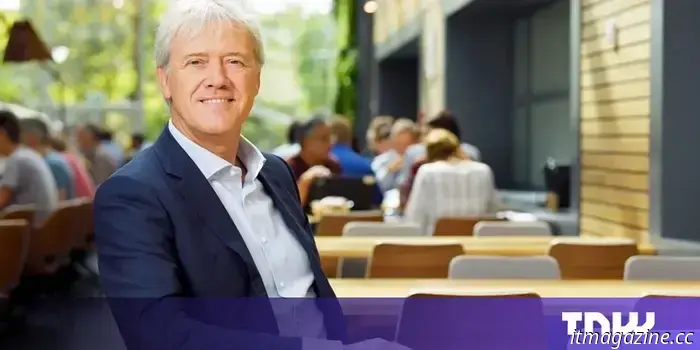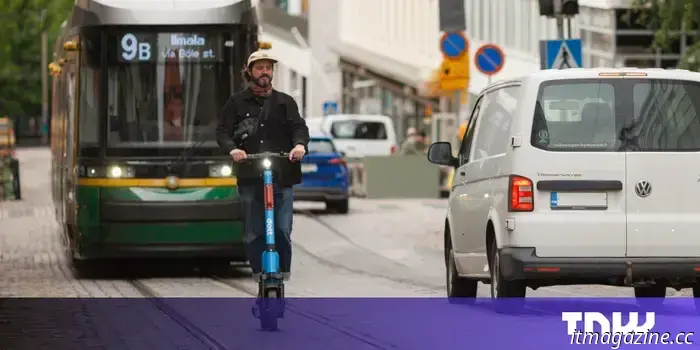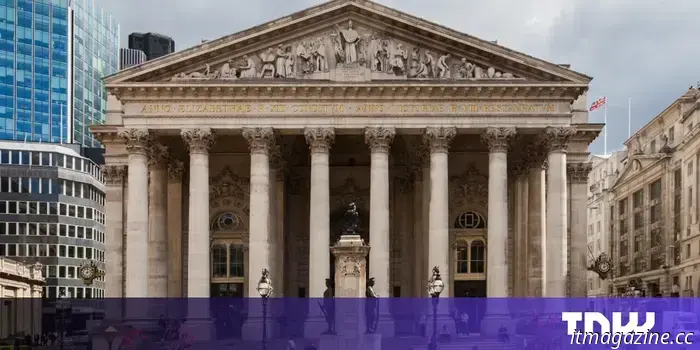
According to the former CEO of ASML, Trump's isolationism could be the "best thing that happened" to Europe.
The former CEO of ASML believes that Donald Trump's potential reelection is a significant opportunity for Europe. Peter Wennink, who guided ASML to become the most valuable tech company in the continent, views the situation as a chance for other businesses to prosper through collaboration as the US adopts a more isolationist stance. “Mr. Trump could be the best thing that ever happened to Europe… I think people have woken up,” said Wennink during the TNW Conference on Friday. He urges Europe to take advantage of this moment by emulating a key aspect of ASML’s success: open ecosystems.
During his tenure as CEO, Wennink led the company to a €250 billion market capitalization, with its stock price increasing by 1,000%. ASML’s leadership is based on its EUV lithography machines, which are crucial for manufacturing the globe's most sophisticated chips, with no other company producing them.
However, Wennink emphasizes that this technology thrives on the support of trustworthy partners. As the US turns inward, he advocates for increased collaboration among European governments and businesses. Many are already heading in that direction due to concerns stemming from Trump’s trade policies and a decline in transatlantic relationships. “They are certainly reconsidering single-sided dependencies as unacceptable due to Mr. T's unpredictability,” Wennink noted.
He believes this shift in mindset was long overdue. Recently, Wennink characterized the Netherlands as “fat, dumb, and happy,” but acknowledges that this complacency is diminishing. He observes changes in local investors' strategies; many European funds are repatriating their capital amid rising political apprehensions about the US.
APG, which manages the largest pension scheme in the Netherlands, recently stated that the majority of a projected €100 billion in new capital would be allocated within Europe. Last month, the €57 billion pension fund cited policy uncertainties under Trump as a significant factor in reassessing its US investments.
Wennink has been directly approached with these concerns. “The big question they now ask me is, how much of the money should come back?” he remarked. “I’m 50 years in business and have never heard pension funds — but also government officials — express this,” he added.
According to Wennink, the current challenge is restructuring these investments, a process that will require several years. In the meantime, US tech giants will continue to progress. Can Europe catch up? Young Sohn, a board member at Arm and founding managing partner at Walden Catalyst Ventures, believes it can. He cites ASML and Arm as two of the largest hardware companies to emerge from Europe.
How did they achieve this? “It was about ecosystems,” Sohn mentioned. Arm, based in the UK, is a prime example, with its chip designs now powering over 99% of smartphones, billions of devices, and numerous AI applications. When it was founded in the early 1990s, Arm was a relatively small player in a market dominated by giants like Intel and Motorola. Sohn contends that the company's success stemmed from its collaborative approach. “They decided to be a peacemaker,” he explained. “They chose to share their intellectual property with nearly everyone worldwide to prevent the need for others to recreate essential processing architectures for energy efficiency… This is a company that cultivated an ecosystem of startups.”
Wennink attributes ASML's achievements to its partnerships as well. The company's ecosystem of suppliers, universities, research institutes, innovation programs, tech firms, and customers directed its development from the beginning. ASML consistently sought insights from all these entities. “When something is very complex, you don’t know what you don’t know — but someone else might,” he stated.
He posits that this model is well-suited for Europe, particularly as Trump alters the US tech landscape. “I firmly believe that there is a European mentality… that there is an intrinsic desire to collaborate,” Wennink remarked. “And the primary condition for collaboration is that you share the risks and rewards fairly among those driving it together. That is a distinctive European characteristic.”
Other articles
 Helsinki employs AI to detect e-scooter accidents before they occur.
Helsinki has initiated a pilot program for e-scooters fitted with AI-driven sensors that track rider behavior and identify safety hazards.
Helsinki employs AI to detect e-scooter accidents before they occur.
Helsinki has initiated a pilot program for e-scooters fitted with AI-driven sensors that track rider behavior and identify safety hazards.
 €19bn Visma selects London for tech IPO, marking a rare success for the UK stock market.
Visma's initial public offering could represent an unusual success for the struggling UK stock market, provided that Downing Street delivers on its proposed reforms.
€19bn Visma selects London for tech IPO, marking a rare success for the UK stock market.
Visma's initial public offering could represent an unusual success for the struggling UK stock market, provided that Downing Street delivers on its proposed reforms.
According to the former CEO of ASML, Trump's isolationism could be the "best thing that happened" to Europe.
During the TNW Conference, former ASML CEO Peter Wennink emphasized that Europe should capitalize on the protectionism and unpredictability brought about by Trump's policies.
